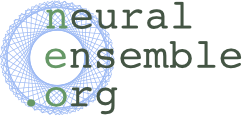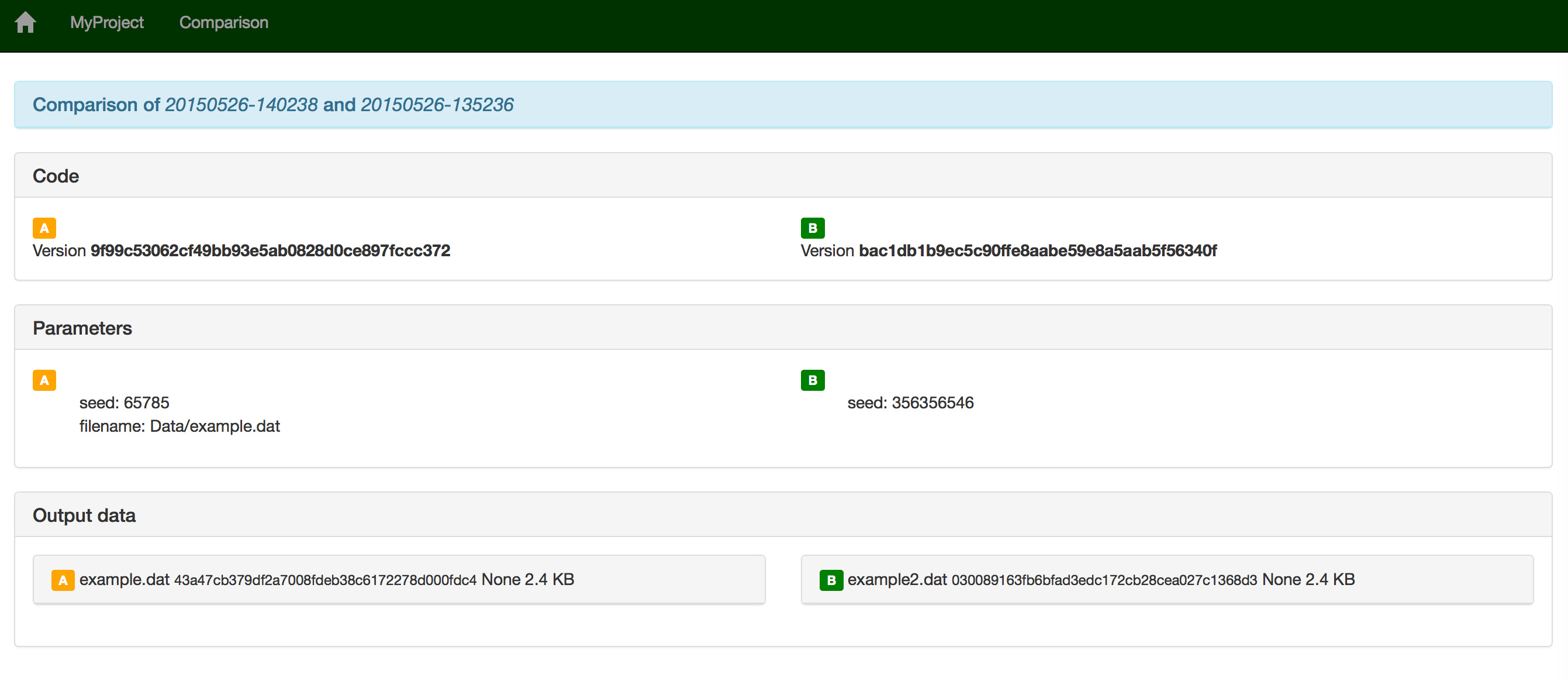We would like to announce the release of version 0.7.0 of Sumatra, a tool for automated tracking of simulations and computational analyses so as to be able to easily replicate them at a later date.
This version of Sumatra brings some major improvements for users, including an improved web browser interface, improved support for the R language, Python 3 compatibility, a plug-in interface making Sumatra easier to extend and customize, and support for storing data using WebDAV.
This version of Sumatra brings some major improvements for users, including an improved web browser interface, improved support for the R language, Python 3 compatibility, a plug-in interface making Sumatra easier to extend and customize, and support for storing data using WebDAV.
In addition, there have been many changes under the hood, including a move to Github and improvements to the test framework, largely supported by the use of Docker.
Last but not least, we have changed licence from the CeCILL licence (GPL-compatible) to a BSD 2-Clause Licence, which should make it easier for other developers to use Sumatra in their own projects.
Updated and extended web interface
Thanks to Felix Hoffman’s Google Summer of Code project, the web browser interface now provides the option of viewing the history of your project either in a “process-centric” view, as in previous versions, where each row in the table represents a computation, or in a “data-centric” view, where each row is a data file. Where the output from one computation is the input to another, additional links make it possible to follow these connections.
The web interface has also had a cosmetic update and several other improvements, including a more powerful comparison view (see screenshot). Importantly, the interface layout no longer breaks in narrower browser windows.
BSD licence
The Sumatra project aims to provide not only tools for scientists as end users (such as
smt and smtweb), but also library components for developers to add Sumatra’s functionality to their own tools. To support this second use, we have switched licence from CeCILL (GPL-compatible) to the BSD 2-Clause Licence.Python 3 support
In version 0.6.0, Sumatra already supported provenance capture for projects using Python 3, but required Python 2.6 or 2.7 to run. Thanks to Tim Tröndle, Sumatra now also runs in Python 3.4.
Plug-in interface
To support the wide diversity of workflows in scientific computing, Sumatra has always had an extensible architecture. It is intended to be easy to add support for new database formats, new programming languages, new version control systems, or new ways of launching computations.
Until now, adding such extensions has required that the code be included in Sumatra’s code base. Version 0.7.0 adds a plug-in interface, so you can define your own local extensions, or use other people’s.
For more information, see Extending Sumatra with plug-ins.
WebDAV support
The option to archive output data files has been extended to allow archiving to a remote server using the WebDAV protocol.
Support for the R language
Sumatra will now attempt to determine the versions of all external packages loaded by an R script.
Other changes
For developers, there has been a significant change - the project has moved from Mercurial to Git, and is now hosted on Github. Testing has also been significantly improved, with more system/integration testing, and the use of Docker for testing PostgreSQL and WebDAV support.
Parsing of command-line parameters has been improved. The
ParameterSet classes now have a diff() method, making it easier to see the difference between two parameter sets, especially for large and hierarchical sets.
Following the recommendation of the Mercurial developers, and to enable the change of licence to BSD, we no longer use the Mercurial internal API. Instead we use the Mercurial command line interface via the hgapi package.
Bug fixes
A fair number of bugs have been fixed.
Download, support and documentation
The easiest way to get the latest version of Sumatra is
$ pip install sumatra
Alternatively, Sumatra 0.7.0 may be downloaded from PyPI or from the INCF Software Center. Support is available from the sumatra-users Google Group. Full documentation is available on Read the Docs.


No comments:
Post a Comment